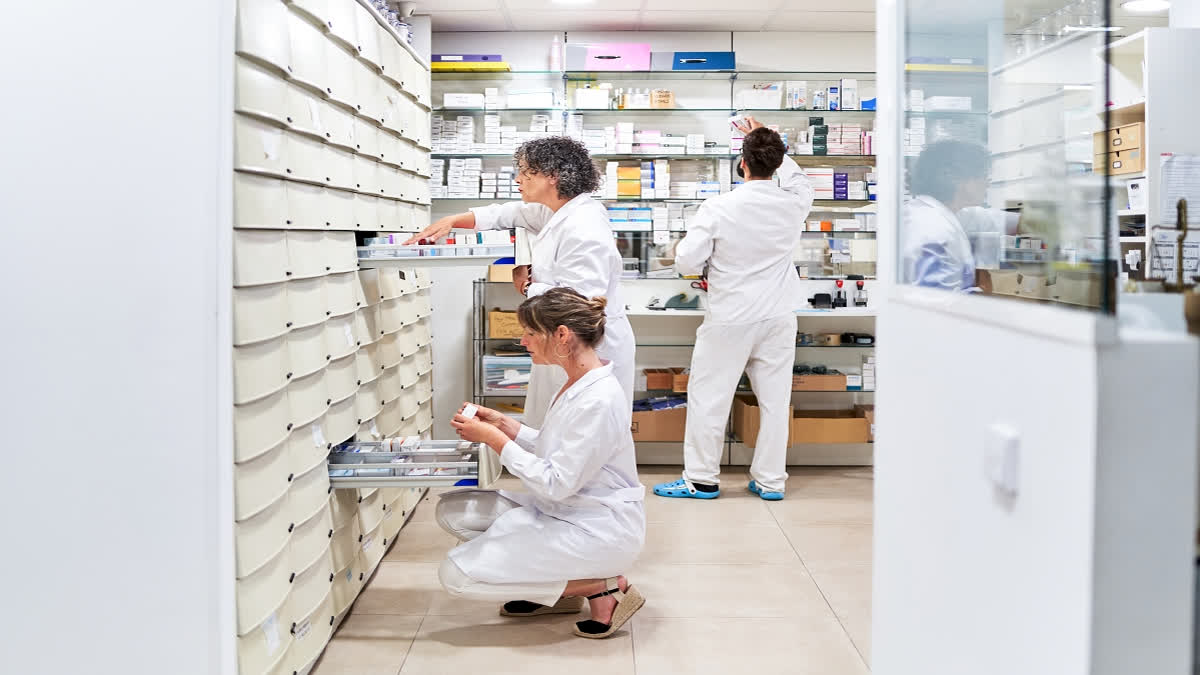Hyderabad: The Pharmacy Council of India (PCI) has declared March 6 to be National Pharmacy Education Day in remembrance of Professor Mahadeva Lal Schroff on his birth anniversary and to honour his role in founding pharmacy education in India.
About Prof. Mahadeva Lal Schroff (March 6, 1902 - August 25, 1971): Prof. M. L. Schroff, is recognised as the father of pharmacy education in India. He certainly remains an ideal to all pharmacists working in this country irrespective of their branches and diversity of duties. He played a great role in building pharmacy education in India, he also contributed to the development of other aspects of the pharmacy profession. Prof Schroff started the M.Pharm Education in 1940 at Banaras Hindu University with his efforts. Slowly, pharmacy education sprung up in different places in India.
About Pharmacy Council of India: The PCI is a statutory body working under the Ministry of Health. It is constituted under the Pharmacy Act, 1948 to regulate pharmacy education and practice of profession in the country. The Pharmacy Act 1948 was enacted with the following preamble- "An Act to regulate the profession of pharmacy. Whereas it is expedient to make better provision for the regulation of the profession and practice of pharmacy and for that purpose to constitute Pharmacy Councils". The PCI was constituted on July 9, 1949, under section 3 of the Pharmacy Act.
OBJECTIVES
- Regulation of pharmacy education in the country for the purpose of registration as a pharmacist under the Pharmacy Act
- Regulation of Profession and Practice of Pharmacy
Current scenario of pharmacy education in India: Pharmaceutical education plays a very prominent role in attaining sustainable and equitable development in a country. The overall basis of pharmacy education is still extrabiologicalsynthesis, physicochemical studies, analysis, and manufacturing aspects of a drug. Pharmacy as a nascent science developed like this in the last century.
During the 1940s and 50s, hospitals and industries were established in large numbers in India. Consequently, pharmacists and pharmaceutical chemists were required in huge numbers. Hence pharmacy education was developed in such a way as to satisfy the requirements of industry and hospitals. Short-term compounders and or D. Pharm. courses to satisfy the needs of hospital and medical shops and B. Pharm. courses for the industry were started. In the West, pharmacy education is patient-oriented and is responsible for healthcare management, while in India pharmacy education is industry-oriented. Nearly 55 per cent of the jobs are available in the industry sector while 30 per cent in education. There are only three per cent of jobs in healthcare.
PHARMACY BILL: On January 21, 1946, the Pharmacy Bill was introduced in the Legislative Assembly by S. B. Y. Oulsnam, Secretary Education Department. On February 8, 1946, the Bill came up for discussion on the motion to refer to the Select Committee. The discussion could not be concluded till the adjournment of the Assembly and the Bill remained pending.
On August 15, 1947, India became independent and the Legislative Assembly became Constituent Assembly. The Pharmacy Bill was again introduced and was taken up in the Constituent Assembly of India (Legislative) on December 12, 1947, in the very first session of the Constituent Assembly after independence and Rajkumari Amrit Kaur (Minister for Health) moved a motion to refer the Bill to a Select committee.
The Germination of Pharmacy Education in India: The history of pharmacy education in India is as old as when the country gravitated towards British Emperorship. A wind of revolution had been started to innovate something different in the education system of Indian Medical Services. Up to the middle of the nineteenth century, pharmaceutical education and training remained in a state of neglect.
The dispensing of prescriptions continued to be carried out by compounders, who had a low level of preliminary training and education. The seeds of pharmacy education in India were sown first by Medical College, Madras in 1860. Steps were taken to start pharmacy classes to impart pharmaceutical skills to the students qualifying for medical degrees or the diploma or hospital assistantship.
The steps proved to be useful for the students intending to qualify as a chemist and druggists. Broadly it was copying the practice as it prevailed at the time in Britain. The classes continued with an increase of the duration of study to two years and entry qualification being made matriculation in due course. In the middle of the nineteenth century, these professionals were scientifically educated and trained. The pharmacy education in India was going to pass through a mutation when the founder of Banaras Hindu University Pandit Madan Mohan Malviya met Prof. M.L. Schroff and he offered him to join BHU. By the untiring efforts of Prof. Schroff in July 1937, pharmaceutical chemistry and pharmacognosy were introduced as the subjects for the B.Sc degree. Since then there has been no looking back. Pharmacy came to be recognised as a well-established course with fruitful outcomes.
National Pharmacy Commission Bill 2023 Proposes Big Changes:
The Ministry of Health and Family Welfare has proposed the introduction of the National Pharmacy Commission Bill 2023. This legislative endeavour aims to establish the National Pharmacy Commission, marking a departure from the existing framework defined by the Pharmacy Act, 1948. The proposed bill underscores a comprehensive approach towards enhancing the pharmacy education system. The draft bill emphasises improving access to quality and affordable pharmaceutical education. It also stresses the availability of highly skilled pharmacy professionals across the nation. The Bill has been published and is now available for public scrutiny and commentary. As part of the public consultation process, stakeholders and interested parties are encouraged to provide their insights and feedback on the Bill.
The bill envisions a pharmacy education system that fulfils the following broad objectives:
- Aligns with national health goals
- Promotes equitable and universal healthcare
- Makes pharmacy services accessible to all citizens
- Encourage pharmacy professionals to stay abreast of the latest research and motivate pharmacists to contribute to advancements in the field



